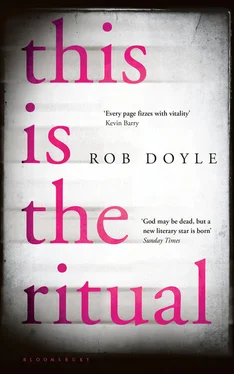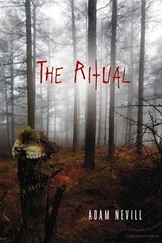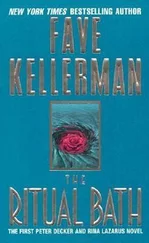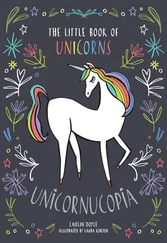Rob Doyle - This is the Ritual
Здесь есть возможность читать онлайн «Rob Doyle - This is the Ritual» весь текст электронной книги совершенно бесплатно (целиком полную версию без сокращений). В некоторых случаях можно слушать аудио, скачать через торрент в формате fb2 и присутствует краткое содержание. Год выпуска: 2016, Издательство: Bloomsbury Publishing, Жанр: Современная проза, на английском языке. Описание произведения, (предисловие) а так же отзывы посетителей доступны на портале библиотеки ЛибКат.
- Название:This is the Ritual
- Автор:
- Издательство:Bloomsbury Publishing
- Жанр:
- Год:2016
- ISBN:нет данных
- Рейтинг книги:5 / 5. Голосов: 1
-
Избранное:Добавить в избранное
- Отзывы:
-
Ваша оценка:
- 100
- 1
- 2
- 3
- 4
- 5
This is the Ritual: краткое содержание, описание и аннотация
Предлагаем к чтению аннотацию, описание, краткое содержание или предисловие (зависит от того, что написал сам автор книги «This is the Ritual»). Если вы не нашли необходимую информацию о книге — напишите в комментариях, мы постараемся отыскать её.
This is the Ritual — читать онлайн бесплатно полную книгу (весь текст) целиком
Ниже представлен текст книги, разбитый по страницам. Система сохранения места последней прочитанной страницы, позволяет с удобством читать онлайн бесплатно книгу «This is the Ritual», без необходимости каждый раз заново искать на чём Вы остановились. Поставьте закладку, и сможете в любой момент перейти на страницу, на которой закончили чтение.
Интервал:
Закладка:
Two days later, he was there again. I was wandering in a different area of the estate, deeper into it, where it becomes harder to tell where you are. The man was walking on his own. He had his hands in his pockets and I could see that he was muttering to himself. When I was about twenty metres away he looked up and saw me. After I had passed him by I heard a call, muffled by a wind that had just then started up. I turned back and he was watching me. His gaze seemed hungry, desperate, as if he craved to take something from me. The man gestured for me to approach him and I did. He was a lot older than me, perhaps in his late thirties. His clothes were faded, as if they’d been worn for so long that all the colours had bled into the same indefinite non-colour as the man who wore them. He took out a pouch of tobacco and started to roll a smoke. ‘Do ye want one?’ he said. His voice seemed hollow, as if there was no one behind it. I wanted to walk away, but I nodded and muttered, ‘Yeah, please,’ even though I’d stopped smoking. He gave me the cigarette, then rolled another for himself. It took him only a couple of seconds to roll them. His fingertips were stained a thick yellow and his nails were caked with dirt. He lit my smoke, then his own. He sat down on his hunkers, facing across the wasteland towards the murk where the sun was sinking, heavy and lifeless, jaded with the world.
‘What’s your name?’ said the man. The question sounded unnatural, as though the speaker were trying to replicate the conversational patterns of a species among whom he was exiled, and whose experience was inscrutable to him.
I told him my name. He asked me why I was walking around Ballymount. I shrugged and mumbled that I just took walks, I needed to clear my head.
‘I know what ye mean,’ he said. ‘It’s the same way for me.’
He opened the tattered schoolbag he had on his back and took out a can of Dutch Gold. He handed it to me and opened another for himself. I stood there with the can, sipping from it, looking at the ground. ‘I come out here and listen to the place,’ he said. ‘The humming of it. And the spirits from the old Ireland underneath. Ye can still hear them, just about.’ He looked sideways at me, gauging my reaction. Though I had just met him, I felt that I could either crush or elate him by whatever I did next.
I nodded my head.
He smoked hard on his roll-up, turning away from me towards a cluster of deserted-looking buildings. He finished his can and opened a new one (I was still on my first couple of sips).
‘What do ye know about Nietzsche?’ he said.
I didn’t know what to answer. I mumbled that I knew a bit, not much, God is dead.
‘Nietzsche didn’t see this coming,’ he said, ignoring my response. ‘Or he did, but he didn’t know how bad it would get. He thought this was a transition, he still held out the hope for some kind of breakthrough. The laughter that would ring out across the planet. As if we could find a home again. But we can’t. There’s nothing to hope for now. That’s why this place around here is a real and honest place. Do ye get me?’
I nodded.
‘There’s no plan any more. This is unprecedented. There is no father. There is no appeal. And hell, hell assumes its true fuckin significance. We’re already there. I saw all this so fuckin clearly, durin a mushroom trip out here, one of the first times I came to this place. The mushrooms are like a technology, they let ye see what’s happened to the world. Death is in everything now. I sat there cryin and screamin for hours. The entire sky was crushin me, all of outer space was pressin down on me, I was buried and I’ve never come back. I’m still buried. There is no surface, nowhere to claw back to. You’re buried too, and ye know it, I can see it in ye. There is no father. There is no therapy. Do ye know how that feels?’
He watched me again, studying the effect of his words. He desperately wanted me to be awed. Despising myself, I pursed my lips and nodded, as if to say it was a profound insight he had just shared. I didn’t know what else to do.
Maybe I had failed to mask my insincerity. ‘What’s your story?’ he asked, guardedly, the portentous tone gone from his voice. Again I had the sense that the question was only a mimicking of curiosity. I said I was a college student but I’d dropped out, I was living at home now, I used to work as a security guard. I didn’t mention the other stuff, the counsellors and psychiatrists.
‘I used to be a security guard as well. Out here.’ He gestured across the expanse. ‘In a warehouse for computer parts. It was like guardin a new race. That was the last job I had. Fifteen years ago, it was. They fired me because I was useless and weak.’
I drank my can and we lingered in silence. I wondered what he had done in the fifteen years since losing his job. The light and warmth were seeping out of the day. Even in the quiet I could feel the intensity of the man’s sidelong focus on me, the restless calculations as to how he could render himself fascinating and enigmatic in my eyes. I felt even lonelier, more famished and dejected in his presence than I felt on my own.
‘This is where ye can be near to death,’ he said. ‘That’s why I come here, to get the feel of me own death, to be waitin for it.’
I craved to vanish into the air. This was a man beyond salvage, doomed, but not in any romantic way; he was merely pathetic, shattered. I saw in him a vision of my own future.
I said I had to go.
‘Sure I might see ye around here again,’ he said quickly. ‘I come out here a lot now.’
I muttered that yeah, maybe I would see him. Then I made my way out of the darkening estate, utterly silent now that the workers had left for the day. I walked out to the Long Mile Road and took a bus back home.
After that I didn’t go to Ballymount for several days. Instead I stayed in the house, lying in bed or playing the Xbox, or I walked into town along the canal. On a cold and sunny afternoon I went to see a film in the IFI. The cinema was nearly empty. It was a film about a middle-aged man in the American Midwest whose son is in a coma, having shot himself in the head in a failed suicide attempt. One morning, at breakfast, the man looks at his wife for a long time, silently, not seeming to hear her questions and pleas. He stands up. Then he walks out of the house, and keeps on walking. He reaches the highway and begins to hitch-hike north, crossing state lines, listening to the sad, broken or ecstatic people who pick him up, but saying little. He crosses the Canadian border. He slants across to the east. He walks to the ends of the roads, and keeps walking, out on to the bare and rocky coast, away from all human settlements. He reaches the Atlantic, cold and hissing, foaming over the rocks. He stops. He stands there and gazes out at the ocean, alone for miles around. Then he begins to laugh, a deep, resounding laugh, the first instance of joy he has shown in the film — but when we see his face, it is clear that there is no real joy, only the cold pretence of it. Then the camera slowly retreats, at an angle and into the sky, leaving us with a view of the man standing on the rocky outcropping. As the camera soars away he dwindles into pinprick insignificance, as if whatever meaning his story had is now dissolved in the infinite. The view of the coast and the ocean is hazed by wisping cloud. The screen is filled with white, the film ends.
The day after I had been to the cinema, I went back to the Ballymount estate. It was a cold, dreary afternoon; winter was approaching. Though I walked for more than four hours that day, I didn’t see the man I had spoken with. When I came back again the next day, after wandering for an hour or so, I saw him sitting on the ground with a bag of cans by his side. He looked up as I approached. He didn’t seem surprised; I wondered if this was an affectation. He offered me a can and I sat by him. A lone bird swooped down nearby, squawking before flying off again. It was evening now, a reddish burning sunset hazed with pollution. I knew what was coming: he would tell me his story. I knew he had been thinking of me since we had first met; not in or for myself, but as an instrument of his own self-recognition.
Читать дальшеИнтервал:
Закладка:
Похожие книги на «This is the Ritual»
Представляем Вашему вниманию похожие книги на «This is the Ritual» списком для выбора. Мы отобрали схожую по названию и смыслу литературу в надежде предоставить читателям больше вариантов отыскать новые, интересные, ещё непрочитанные произведения.
Обсуждение, отзывы о книге «This is the Ritual» и просто собственные мнения читателей. Оставьте ваши комментарии, напишите, что Вы думаете о произведении, его смысле или главных героях. Укажите что конкретно понравилось, а что нет, и почему Вы так считаете.












